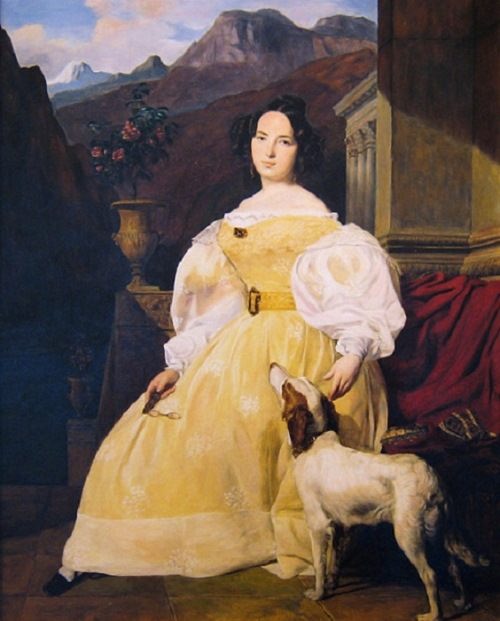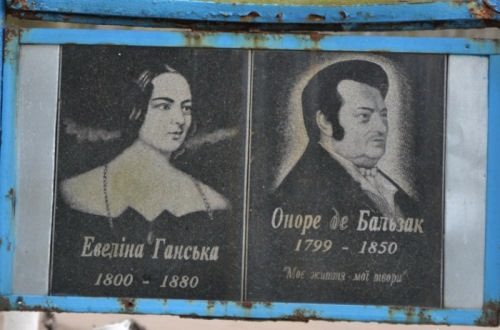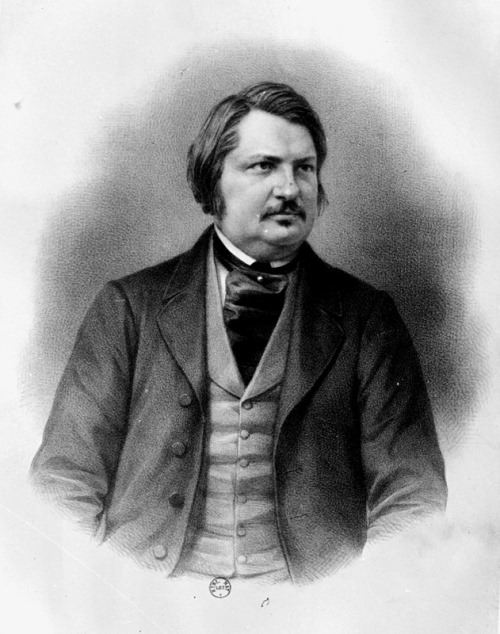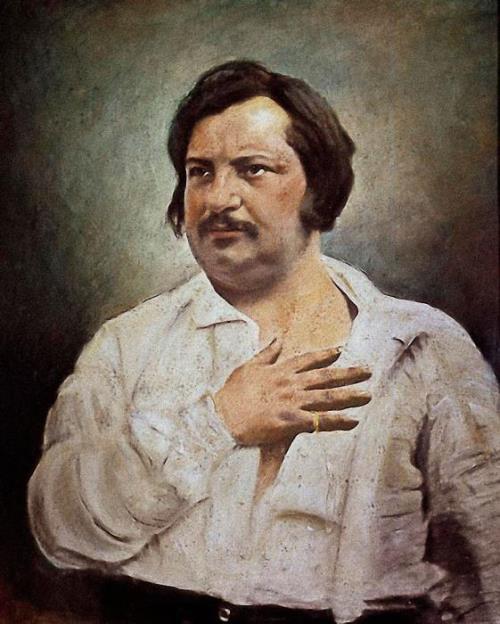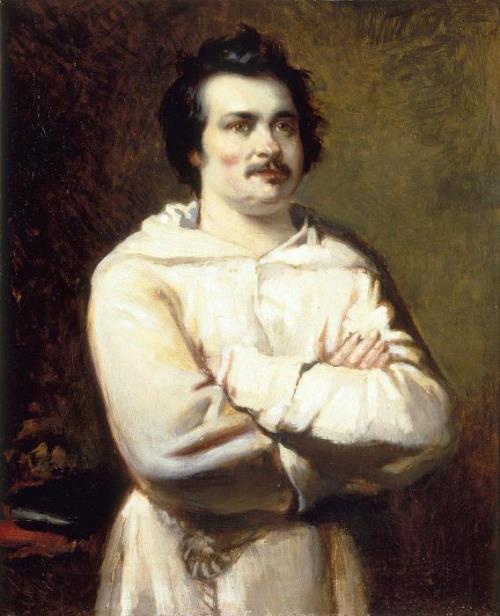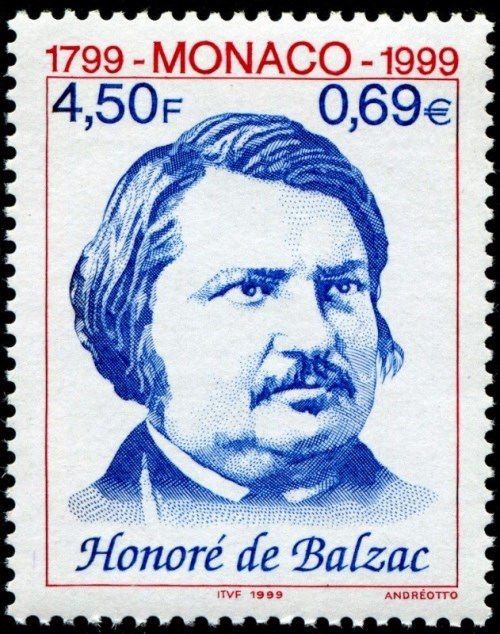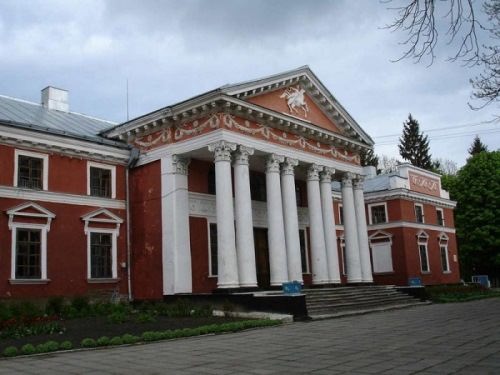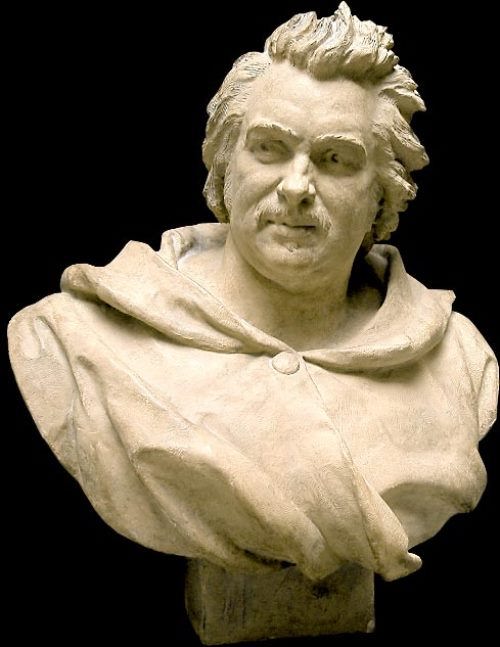Honore de Balzac and Eveline Hanska
The great French writer Honore de Balzac (1799-1850) was born in Tours in the family of a poor civil servant and the daughter of a French bourgeois. The boy spent his childhood away from his parents’ house. At first, the nurse, a simple peasant woman, was engaged in the upbringing of the boy, and when he was four years old, Honore was given to a boarding school. Up to eighteen years, Balzac was forced to study and live in boarding schools and colleges, and all his life the writer remembered this time as the most difficult and bleak. Honore spent every spare minute in libraries, read a lot, but when he tried to write himself, he was ridiculed by his peers, who gave the future writer a derisive nickname “poet”.
When the boy was 14 years old, he suffered a severe nervous disease, and the parents were forced to take Honore home. A year later Balzac’s family moved to Paris, where the child was again sent to a boarding school.
Experiencing a serious spiritual drama without close friends and relatives in his childhood, an uncommunicative and laconic boy promised himself to become a famous genius who would never be given abusive nicknames.
And Balzac became famous. He achieved success by stubborn, sometimes infernal labor. He had been working for ten and sometimes twenty hours a day. A few years after Balzac began to publish his works, all the literary Paris was waiting for the release of his new books, the publishers begged the writer to create another masterpiece for them and promised huge fees. Every day he received dozens of letters from different parts of the world.
Once, on February 28, 1832, Balzac received a small letter from Odessa, which he probably would not have read at all, if he had not noticed that the return address was not indicated on the envelope. At the end of the letter, someone laconically and mysteriously signed: “Outlander”.
Handwriting and manner of expressing the thoughts showed an educated, apparently wealthy woman. Balzac never doubted that she was intelligent, young and very beautiful. Soon a mysterious stranger revealed herself. She was Eveline Hanska (1801-1882) from Polish nobility.
The correspondence began between the well-known writer and the beautiful woman from Odessa. Their passionate love story continued for sixteen years. Eveline spoke English and German, and she was fluent in French. Eveline’s husband was almost twenty years older than his wife, and she wanted to be free as soon as possible. Lovers were making plans for the future.
Balzac constantly told her about his love, faithfulness and integrity. In fact, being a great intriguer, adoring generally all women on earth, Balzac fell in love, lost his head and betrayed his distant stranger.
Finally, in the autumn of 1833, Balzac and Hanska met. The long-awaited meeting took place in the Swiss town of Neuchâtel. A few days spent with her family became the happiest days in the life of Honore de Balzac, although he almost did not manage to be alone with his beloved. It happened only once, and then he gave Eveline a very passionate and promising kiss. The writer returned to Paris happy and enthusiastic. Now the whole life of the French genius belonged to a beautiful lady from a far country.
The lovers agreed on a new meeting, which took place in a few months, in December of the same year. When Balzac came to the appointed place, a small Geneva hotel Del Ark, he found there a small gift from Eve – a precious ring-mascot, which he wore on his hand until his death. The lovers vowed that night that they would marry after the death of Eve’s husband.
Hanska returned to her Ukrainian estate and Balzac to Paris. Their correspondence continued, and confessions of love were even stronger and brighter.
Meanwhile, the illustrious writer fell in love with another woman, so passionately and so much that he forgot about his beloved Eve. The new mistress of the writer was the rich English Countess Guidoboni-Visconti, a sensual and bright blonde, who gave birth to their son. However, the boy never inherited the name of the great father. The English countess was Balzac’s mistress for five years, she helped him in everything. She did not even think of her husband, and he, fortunately, was not jealous.
Soon the rumors reached Hanska, who tried to break up with him. Balzac didn’t want to lose his distant stranger and rich bride.
In the autumn of 1841, Eveline’s husband died. For Balzac, that meant cloudless happiness with the Russian woman, and the fact that Eveline really mourned for her husband, who was for her a patron, caring and loving husband, the writer did not expect. Eve did not answer letters from France and for six months she did not write Honore. Finally, Balzac received a letter in which there were only a few dry and cold words: “You are free.”
In September 1847, despite the illness, Balzac decided to go to the estate of Hanska – the Verkhovna. However, soon returned to Paris with nothing – Eve refused to marry him. In September 1848 the novelist visited her again. He was already an aged and very sick man and Eveline decided to marry him.
On March 14, 1850 the lovers got married in the church of St. Varvara in Berdichev. But the happiness of the couple did not last long. They moved to Paris, and five months later the writer suffered from attacks of severe suffocation. An exhausted and dying writer, accidentally bruised his knee and had gangrene of his right leg. On August 18, 1850 Honore de Balzac fainted and died in agony and delirium.
The grief of his beloved was strong, but, alas, short-lived. Exactly six months later, she started a stormy romance with the beginning literator, who was two decades younger than her. She was not ashamed to go out together with the young man, had fun and enjoyed the stormy Parisian life. A year later Eveline met the artist, with whom she remained until the end of her life. Hanska died on April 10, 1882 and was buried in the Père Lachaise Cemetery near Balzac.
Unfortunately, most of Eveline’s letters addressed to the great writer were not preserved. At the request of Eve, Balzac destroyed them. This happened immediately after one of the mistresses of the French novelist, Madame de Brienol, stealing several letters from Hanska, demanded a large ransom for the letters.


